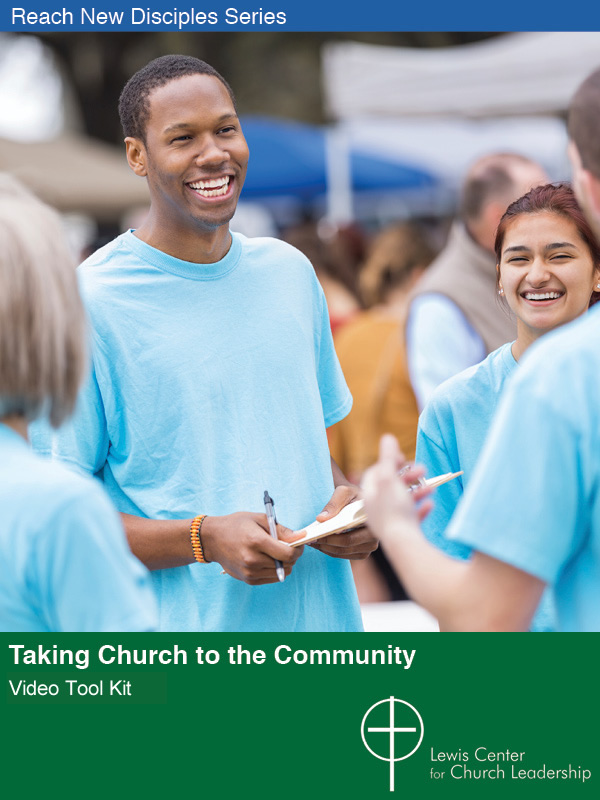Pastor Carey Nieuwhof says congregations need to break free of the mentality that people need to come to church at a set time and place to be in relationship with Christ. Churches need to innovate and keep experimenting to reach people, for example, through digital outreach, remote locations, and pop-up churches.
Too many church leaders are perfectly equipped to reach a world that no longer exists. If you think about it, most churches (even growing churches, new churches and large churches) effectively say “We’d love for you to come into a relationship with Jesus Christ; to do it you need to join us at a set hour every Sunday in a particular space we meet in.” Beyond that, we’re not sure what to do.
That’s a remnant from a day when everything was done on a set clock. You sat down Thursday night at 8 to watch your favorite show because you didn’t want to miss it. Of course, for years nobody has watched any show at a set time unless it’s a live game or a live event. You watch everything else on demand wherever and whenever you want. Shopping happens on your phone 24 hours a day, not during the set hours of a physical store that has limited stock. Streaming has changed how we listen to music. You don’t own music anymore. You rent access to anything, anytime, anywhere.
It’s critical that church leaders keep trying new things and keep experimenting. Why? Because the gap between how quickly you change and how quickly things change around you is called irrelevance.
Yet in the church we perpetuate a model that says “We have one, two, or three services on Sunday. We do a midweek service. And that’s how we help you come into a relationship with Christ.” The cultural change has been underway for decades, but the church has been slow to adapt. For years we’ve noticed that even committed Christians are attending church less often. But now more and more church leaders are re-imagining what it is to be the church.
Future churches will have a building; they’ll just reach far beyond it. You’ll still need a facility, a broadcast location, a school or theater to rent — some space in which to meet. But you’ll need to think way beyond it. Churches who only think Sunday and who only think building will continue to shrink. If coming to Christ means coming to your church in a set location and a set hour, you need a new strategy.
The digital is real
What does better engagement beyond a set time and place on a Sunday look like? The answer will require a ton of experimentation, but for sure it involves your digital reach. The church has been questioning for years whether their digital space ‘counts’ — whether it’s real. In 2016, Connexus Church launched our livestream. In 2017, our physical attendance grew, but our weekly online ‘attendance’ for the first time became bigger than our physical attendance. And a majority of first time guests at our church now tell us they watched online for weeks or months before they walked in the door. That’s not going to stop us from adding physical locations, but it also means we need to decide what to do with people who watch and engage online.
Unfortunately, I still ask “do online people count?” But increasingly that question is becoming downright silly. Here’s the truth: asking whether people who watch church online ‘count’ is like Sears asking if Amazon counts. It’s like New York City cabs asking if Uber counts or Lyft counts. Of course they count.
We need to figure out how to engage with people we may never meet. Have we figured that out yet? No one has. But just because you don’t know the answer doesn’t mean you shouldn’t ask the question. You may not have a million dollars to throw at technology, or even $1,000. But you probably have a free Facebook page or an Instagram account. Start treating that as real and see what happens.
Location independence
A growing number of churches will start to minister independent of location. In the future, many people will consider a church to be their home church even though the church is in a city they’ve never been to. Some leading churches are already getting innovative and are facilitating viewing parties, remote baptisms, remote gatherings, small gatherings, and other connections that will become part of the new normal. Just as more workers are increasingly location-independent, more churches will emerge as location-independent, thanks to technology.
Pop-up churches
But as technology increases so does the need for human connection. In thriving ministry models, both digital and analog will grow. But as every church leader knows, to open a new campus or church in a new community takes time, money, risk, and experimentation. That’s why you’ll see more pop-up churches. Just as we have seen the rise of pop-up restaurants or pop-up stores, we will see more pop-up churches that open in a new location for a night or a month or a season. Connexus Church has done this the last two Christmases, hosting Christmas services now in four cities where we didn’t have permanent locations. We’re adding a new permanent location as a result.
You can rent old churches, theaters, restaurants, banquet halls, or whatever to bring your church into a new community. It gives you a chance to test the waters for expansion and to bring the hope of Christ into a new place without making a massive initial investment. Again, practically speaking, maybe just hold a night of worship somewhere in a different city where a small pocket of people who attend your church reside. Or find a city where you have some traction online. Then just hold one or two really good events there and see what happens.
Keep experimenting
The culture continues to change rapidly. If anything, the pace is accelerating, not slowing. The question is: are you and your team ready for all that’s ahead? It’s critical that church leaders keep trying new things and keep experimenting. Why? Because the gap between how quickly you change and how quickly things change around you is called irrelevance.
This article is adapted from Carey Nieuwhof’s blog post “7 Disruptive Trends that will Rule 2018.” Used by permission.
Related Resources
- “The Possibilities of Fresh Expressions,” a Leading Ideas Talks podcast featuring Ken Carter and Audrey Warren
- Taking Church to the Community Video Tool Kit
- 50 Ways to Take Church to the Community, a free Lewis Center resource







